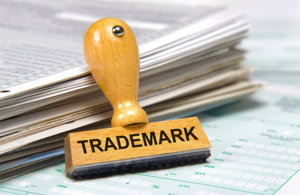Checking trade mark addresses and reporting misconduct of agents
We have increased the checks on addresses provided in trade mark applications and introduced a process for reporting misconduct by unregulated agents.

Checking trade mark addresses
We have significantly increased scrutiny of addresses provided to us in trade mark applications by carrying out hundreds of checks. We have also withdrawn trade mark applications that have unacceptable addresses. If an applicant provides misleading information this could lead to their applications being refused (on the grounds of bad faith).
Why do we check addresses?
Anyone who applies to register a trade mark must provide an address where we can contact them. This is known as an address for service. This address is important because it allows people to contact the owner of a trade mark.
The address must be:
- a place where post can be delivered and received by the intended recipient.
- in the UK, Gibraltar, the Channel Islands or the Isle of Man
Address for service scrutiny team in place
We now have a team in place within the trade mark examining area to deal with address for service issues. They carry out checks to make sure that addresses meet legal requirements and provide an effective way to communicate with the trade mark owner.
How to raise a concern
Email [email protected] to raise a concern about an ineffective address for service. We are particularly interested in evidence that post could not be delivered to an address.
Reporting misconduct of unregulated representatives
A representative (or agent) is someone who acts before the IPO on your behalf.
If an unregulated representative is found guilty of misconduct, we can stop them from acting before us.
We can do this where the misconduct is so severe that, if the representative had been regulated, they would have been removed from the regulator’s register. Following feedback from users, we have made improvements to our processes and guidance below.
Further advice available
Our Seeking intellectual property advice page now explains how to make a complaint about an unregulated representative. It also explains the differences between regulated and unregulated representatives:
- regulated attorneys must pass examinations to become qualified. They must be insured, carry out training each year, and follow a code of conduct.
- advice from regulated attorneys is given in confidence (subject to legal privilege)
- only regulated representatives can call themselves a patent attorney, patent agent, registered trade mark attorney or registered trade mark agent
- IPReg and the Legal Ombudsman handle complaints about regulated attorneys
- using a regulated representative means there are safeguards in place
This new information complements information already provided on our Why you should use an IP attorney page.
Updated complaints procedure
We have updated our Complaints procedure page to make it clear that we can handle complaints about unregulated representatives.
Finally, we are monitoring queries and evidence gathered by the address for service scrutiny team. This means address for service violations may be used as evidence of misconduct.
We will protect customers by taking action where we see misconduct. We hope the changes we have made reflect how seriously we take this.